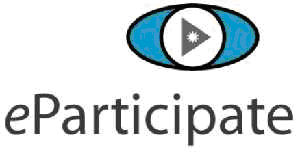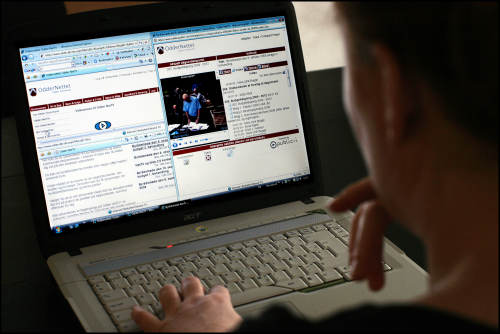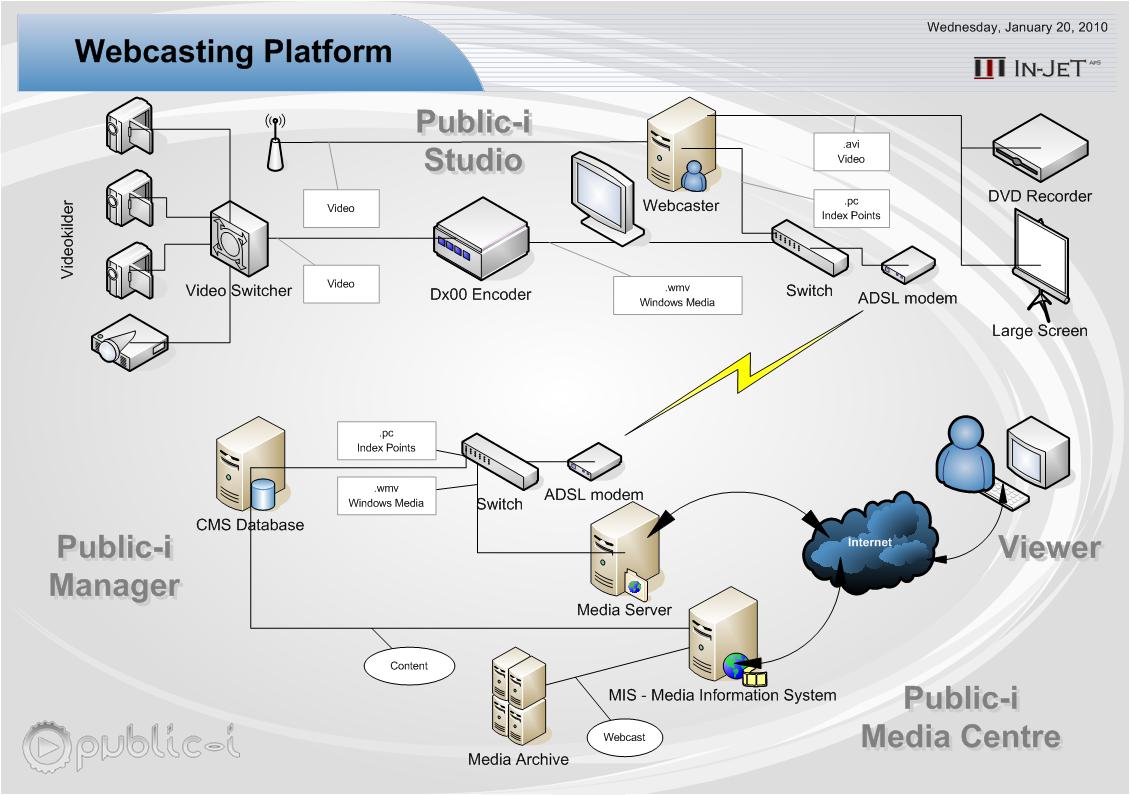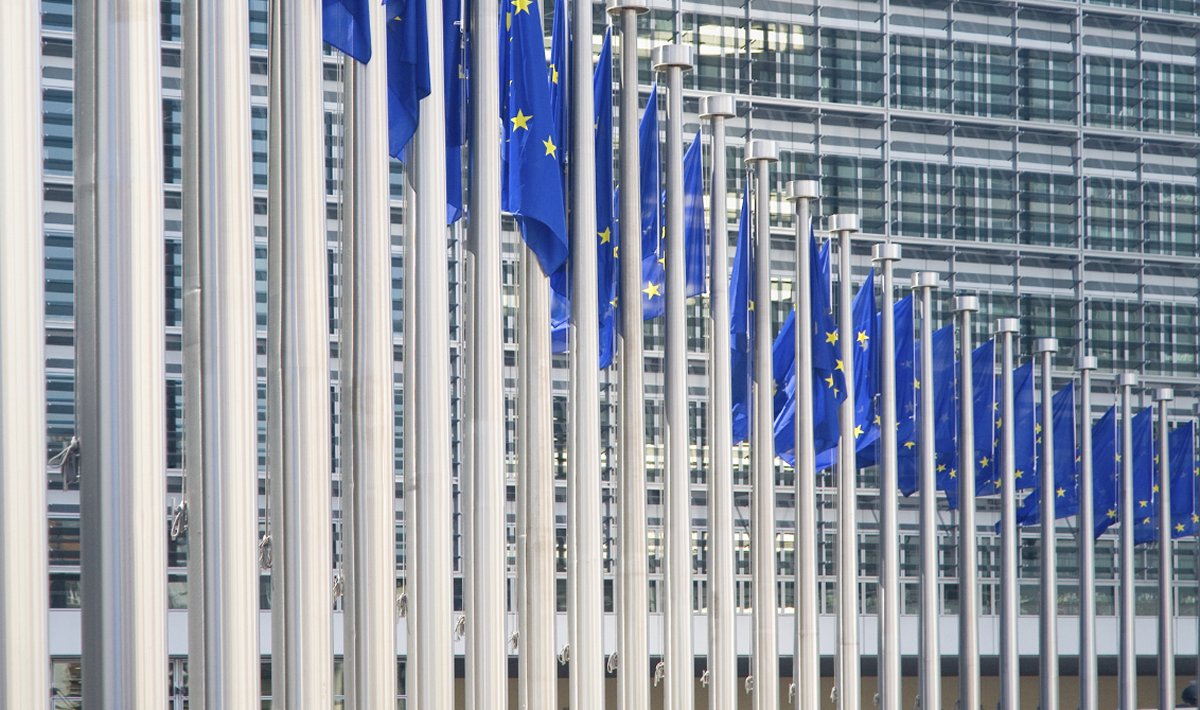
eParticipate
The eParticipation Trans-European Network for Democratic Renewal & Citizen Engagement
The eParticipate project was a 24 month Initial Deployment follow-on from a very successful Market Validation of an eParticipation multimedia platform that was launched in the UK, Spain, Ireland and Slovakia.
The aim was to help Local Authorities use webcasting as a means to re-engage citizens in the democratic process and broaden the participation of citizens. This was done by deploying an eParticipation multimedia webcasting platform with “best of breed” applications that made it easier for citizens to get involved in the democratic process.
The core of eParticipate is the public-i webcasting system that wraps functionality around these streaming media technologies which means that it can make use of cutting edge components while at the same time tailoring the end product closely to the needs of its market. By wrapping contextual information – both textual and graphical – around the encoded live video stream, eParticipate was able to offer a far richer user experience and one which is more deeply rooted in the democratic context. Unlike the majority of live webcasts that involve the use of camera crews to capture an event’s content, the public-i system simplified this process by the use of cameras remotely-controlled from the encoder PCs. The architecture is open, making use of web services and XML to facilitate data exchange. This means that it is simple ‘plug in’ 3rd party content and functionality as has been done with the public-i consultation modules.
The service was deployed to ten different municipalities in eight key EU Member States across Europe (Czech Republic, Denmark, France, Ireland, Italy, Slovakia, Spain and UK). Each Local Authority provided live and archived Internet webcasts of local municipal meetings both on and off site and other local community events. Citizens could view the broadcast online at any time and place and interact as they chose.
Project data


Rationale
In spite of the potential of the Information Society and the huge investment in eGovernment initiatives in all Member States, there continues to be a growing democratic deficit towards all forms of Government, particularly at a local level. ICT can enable new levels of eParticipation to address this deficit by providing an open web-based solution that is proven to support, encourage and enable improved democratic renewal and citizen engagement.

The eParticipate methodology focused on the need for clear, accessible, informative and transparent communication as a foundation for eParticipation. By using coherent methods to inform citizens and explain the issues, they were equipped to get involved in local decision making. eParticipate used this model to provide tools to support democratic renewal in three main areas (a) Transparent & accessible communication, (b) Getting representation online, and (c) Extending consultation. Once a public body has developed public trust and public interest then it is possible to build on public participation and engagement.
The core eParticipate platform centred on multimedia webcasting in a manner which informs and encourages an engagement with a viewer. This was achieved through the inclusion of key contextual information and provision of feedback facilities combined with other communication tools such as online consultation. The aim was to promote greater public involvement in local decision making and enhance the representative role of Local Councillors in their community through the use of ICT.
Architecture
The multimedia webcasting platform was based on the Public-i webcasting system which has a client/server architecture. The client encoder PC is used to capture and encode the A/V content. The encoded content is streamed alongside live contextual information. The software utilised the two streaming media formats that dominated the market at the time – Real Media and Windows Media.
Client encoder settings are synchronised with the central server database which stores all webcast and system data. Serial communication is used to control the content capture hardware. All other communication takes place over TCP/IP. The client encoder is connected to the Public-i network via direct dial ISDN or ADSL in order to ensure uncontested connectivity.
Technology
Public-i makes extensive use of open source and platform-independent technologies including MySQL, Apache HTTP server, Apache Tomcat, PHP and Java. Java web services and server applications are used to facilitate supporting rich contextual information for webcast presentations. These server applications also include a messaging service provided for live support.
The client application suite, Public-i Studio, has been written mainly in Visual Basic (with some Visual C++ modules). One feature enhancement has been the ability to create complete webcast presentations offline, ready to be published for on-demand viewing.
Public-i used a fixed list of hardware comprising:
Standard
- Sony EVI-D100P Cameras>
- Carillon/Techex Custom Built Video Encoding Workstation with Osprey 220 Encoding Card, ISDN2 and Monitor
- Pioneer DVR-3100S DVD Recorder
- AVC VS450 Vertical Interval Video Switcher
Optional Audio
- Audio Technica AT-MX341a Smart Mixer
- Audio Technica ES961 Boundary Microphones
- Associated 3 Core Cabling
Technology Providers
The service was hosted with Groovy Gecko1 on the Akamai network. The Akamai Akamai Content Delivery Network consists of hundreds of servers deployed at the edge of the Internet, at multiple points of presence, on multiple networks, all around the world.
Expected Project Outcomes
The main democratic measure was to achieve a 25% increase in citizen participation in local democratic activities especially with regards to meeting attendance and consultation participation. The target was reached and exceeded. One example is the Local Authority Partner, Odder Kommune who focused on webcasting the town council meetings where the citizens were able to watch the meeting live or in an archived version. Odder Kommune reached an increase of 800% when it came to live viewers. However, as the live viewers only accounted for 10% of total viewers the first month, the increase was considerably higher. Activities were measured by the number of webcast viewers in relation to the number of citizens who physically attended the council meetings. The figures are based on an average of 5 citizens per town council meeting and an average of 45 live viewers per meeting and 463 viewers who watch the archived version the first month.
Additionally, a citizen panel survey showed that citizens found that webcasting had made it easier for them to access council decisions and consequently made them more interested in the political work of the town councillors.
In-JeT’s Role in the Project
In-JeT ApS was involved in eParticipate as a Danish Technology and Business Partner responsible for deploying the technology in Denmark in accordance to Danish council needs. The aim was also to research and attract new local authorities in Denmark that want to open up the democratic process by means of ICT.This work continues today in Public-i Danmark, http://www.public-i.dk in close partnership with Public-i Ltd. Besides marketing the Public-i webcasting service in Denmark, In-JeT ApS offers consultation on the strategic use of technology to enhance citizen involvement.
Partners
- The National Microelectronics Applications Centre Ltd, Project Coordinator, Ireland

- Software602 A.S., Czech Republic

- Waverley Borough Council, Local Authority, United Kingdom
- In-JeT ApS, Denmark
- Odder Kommune, Local Authority, Denmark

- Digitech SA, France

- Fingal County Council, Local Authority, Ireland

- Comune Di Genova, Local Authority, Italy
- Lattanzio E Associati S.R.L., Italy
- Mesto Vrutky, Local Authority, Slovakia

- A.S. Partner, S.R.O., Slovakia

- Ayuntamiento De Getafe, Local Authority, Spain

- Management System Solutions Network, S.L., Spain
- Ayuntamiento De Brunete, Local Authority, Spain
- Bristol City Council, Local Authority, United Kingdom

- Public-i Group Limited, United Kingdom

- Vysocina Kraj, Local Authority, Czech Republic

- Commune De Elancourt, Local Authority, France

Funding
Funded by the European Community Programme eTEN – Trans-European Network for Democratic Renewal & Citizen Engagement. The eParticipate project addresses the eTEN eGovernment and i2010 objectives which include strengthening participation and democratic decision-making to help reduce democratic deficits in Europe.




